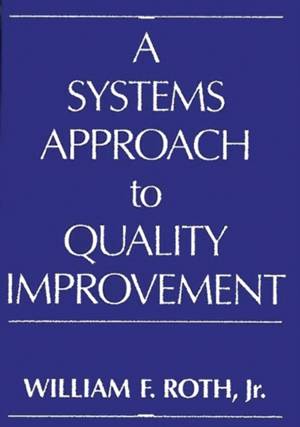
- Retrait gratuit dans votre magasin Club
- 7.000.000 titres dans notre catalogue
- Payer en toute sécurité
- Toujours un magasin près de chez vous
- Retrait gratuit dans votre magasin Club
- 7.000.0000 titres dans notre catalogue
- Payer en toute sécurité
- Toujours un magasin près de chez vous
Description
While many quality improvement processes in business have enjoyed initial success, most have eventually failed--not producing the desired long-term results. This is because, though our learning curve is good, we still lack the sophistication requisite to generate the necessary comprehensive whole. This work attempts to help define the ingredients of such a whole. It then offers a case history which allows us to see what happens when the results of these efforts are actually put into place. Finally, it identifies the key obstructions to and long-range societal opportunities resulting from successful implementation of such wholes.
According to Roth, there are five necessary phases to any comprehensive quality process: familiarization, team building, training, introduction to statistical measurement techniques, and long-range planning. In addition, truly open communication at all levels and real and continual, as opposed to verbal, top-level management support are crucial. Roth explores the five phases in detail. He then presents a blow-by-blow description of their emplacement at two major manufacturing facilities. This work should be of interest to quality process heads, human resource managers, manufacturing managers, top level executives, and scholars and students of quality improvement.Spécifications
Parties prenantes
- Auteur(s) :
- Editeur:
Contenu
- Nombre de pages :
- 208
- Langue:
- Anglais
Caractéristiques
- EAN:
- 9780275941079
- Date de parution :
- 30-12-91
- Format:
- Livre relié
- Format numérique:
- Genaaid
- Dimensions :
- 156 mm x 234 mm
- Poids :
- 467 g

Les avis
Nous publions uniquement les avis qui respectent les conditions requises. Consultez nos conditions pour les avis.






